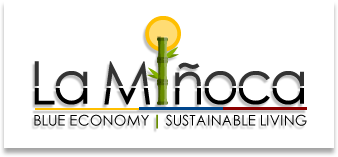The land is cultivated using permaculture techniques and focusing on the growth of different perennial species growing intertwined with each other to maintain biodiversity.
Nothing better than grabbing fruits from the trees and collecting eggs from the farm to make your own breakfast, so if you enjoy healthy and fresh food this one will take it to the next level 😉
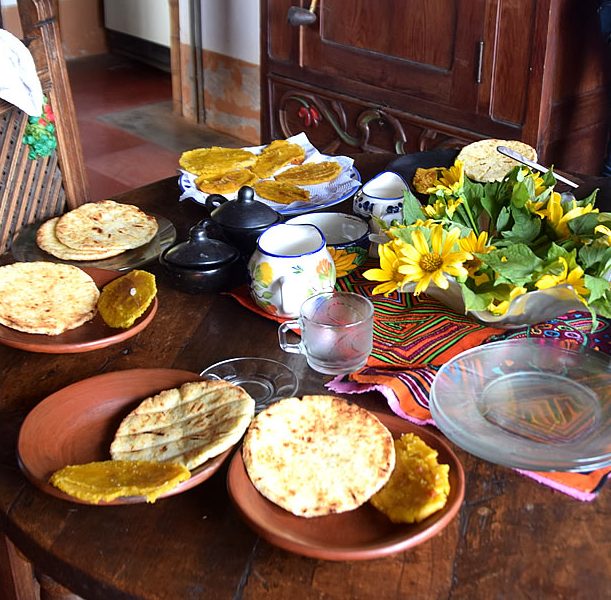


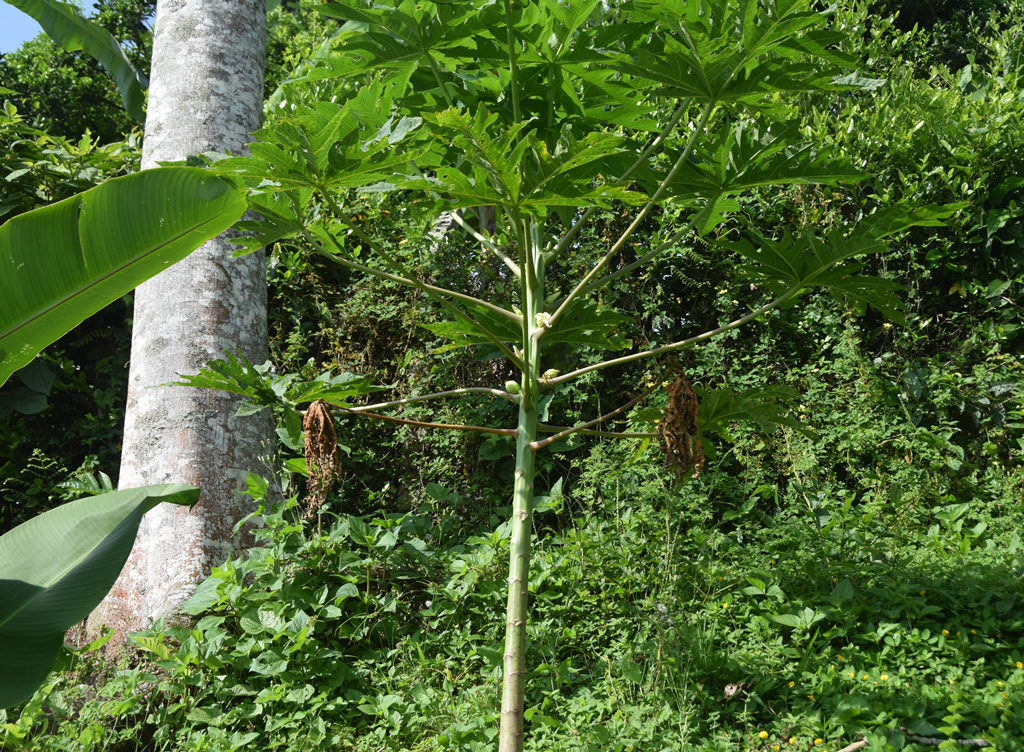
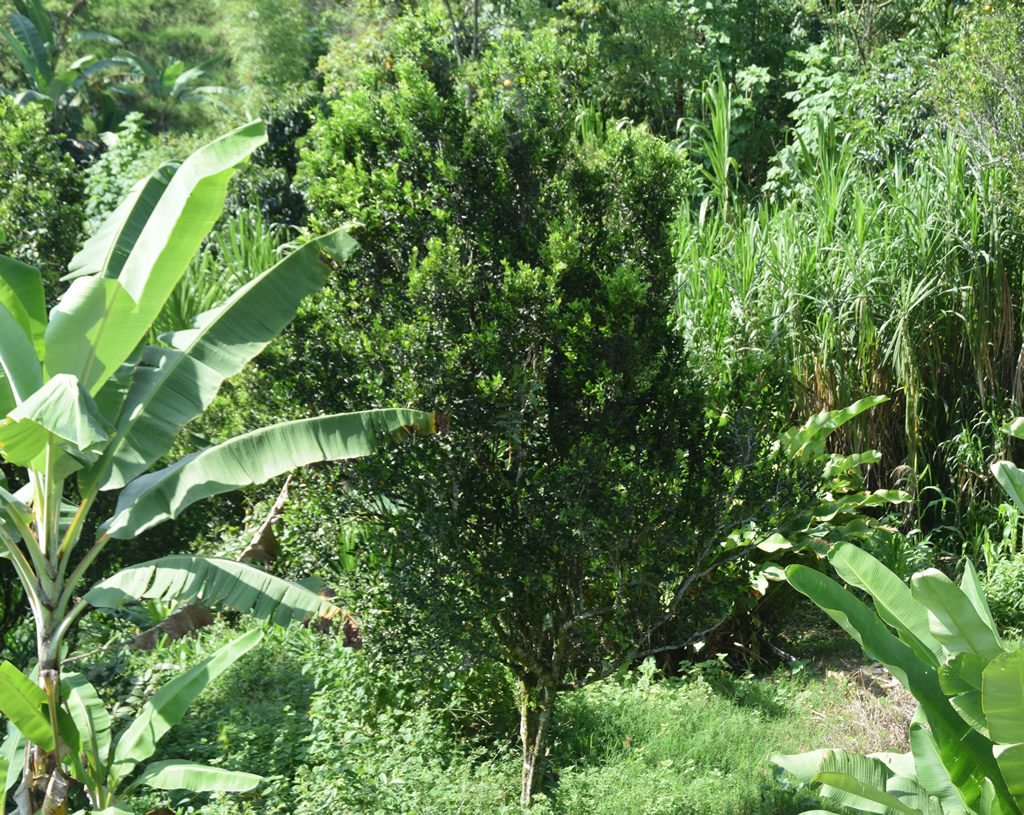
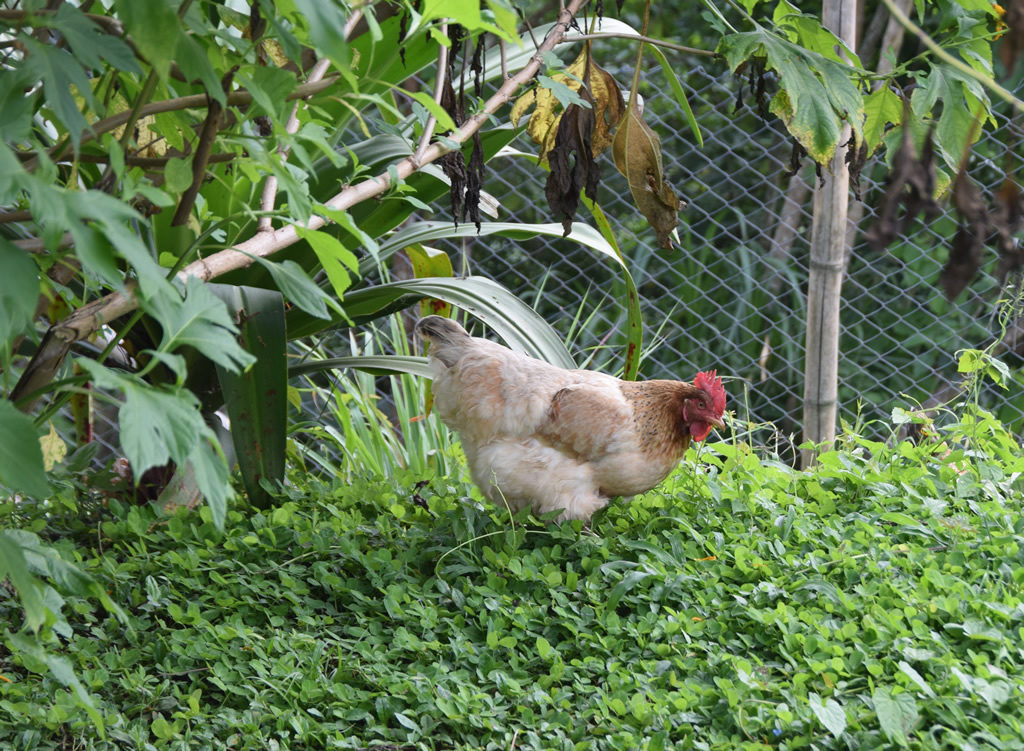
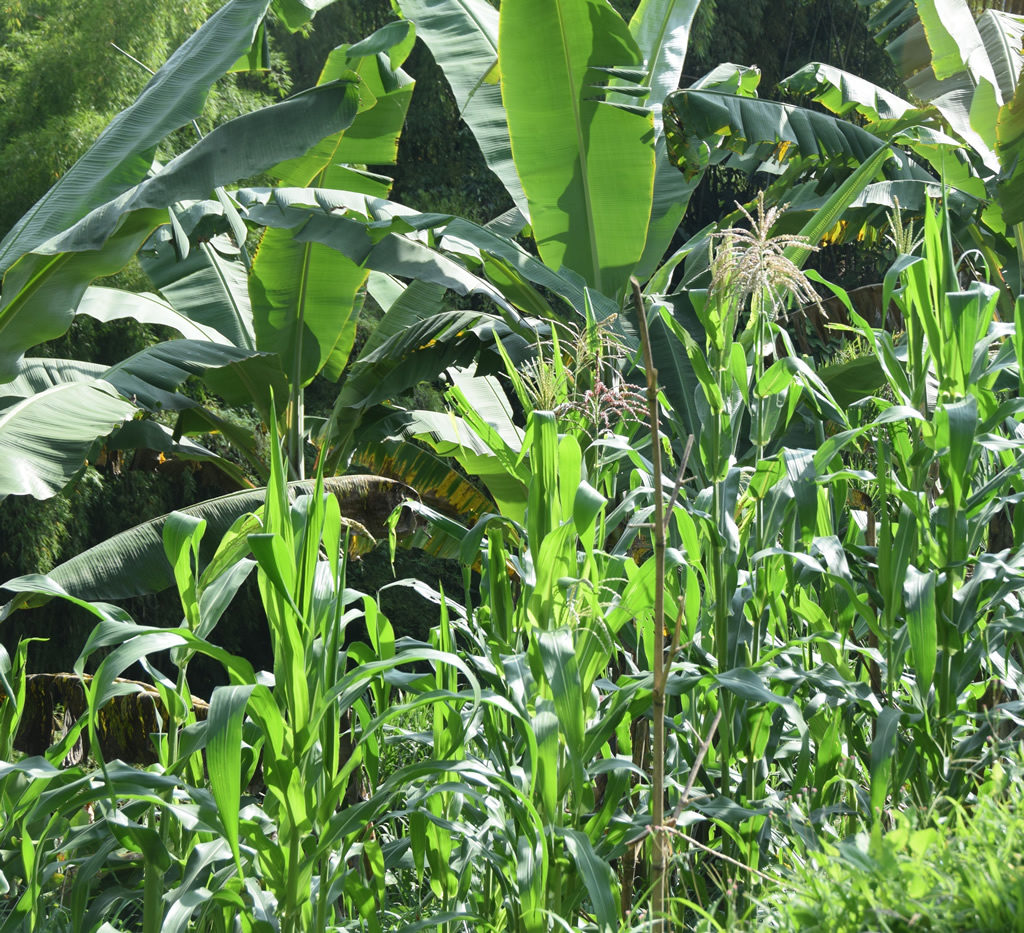
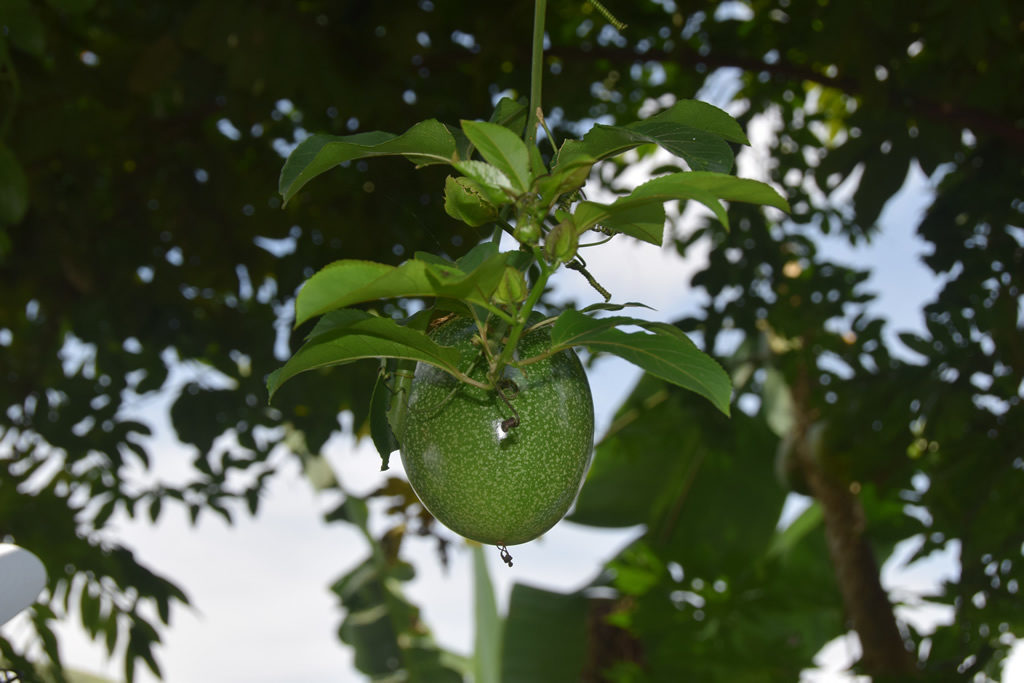
The main ongoing project at la Miñoca is the creation of an edible forest made of perennial species. This land-use solution through regenerative agriculture is also a contribution to climate change mitigation and food security. The perennial edible forest will be a source of healthy, balanced and nutritional diet from foods produced 100% within the farm, without the use of pesticides or potentially toxic chemicals. By growing perennial species the soil does not need to be tilled (as required by annual crops), increasing its carbon storage capacity.
The cultivation of diverse perennial species is a contribution to reforestation, carbon sequestration, climate change and generation of soil biodiversity.
This project represents a systemic approach and application of the concepts of “Carbon Farming” elegantly explored in Eric Toensmeir’s Carbon Farming Solution (http://carbonfarmingsolution.com/bio)
“We should not force nature to work like a factory, we should make factories work like nature”. Gunter Pauli.
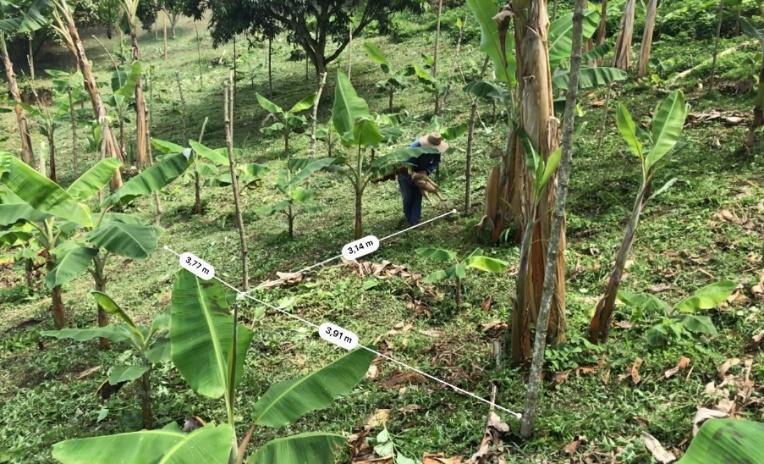
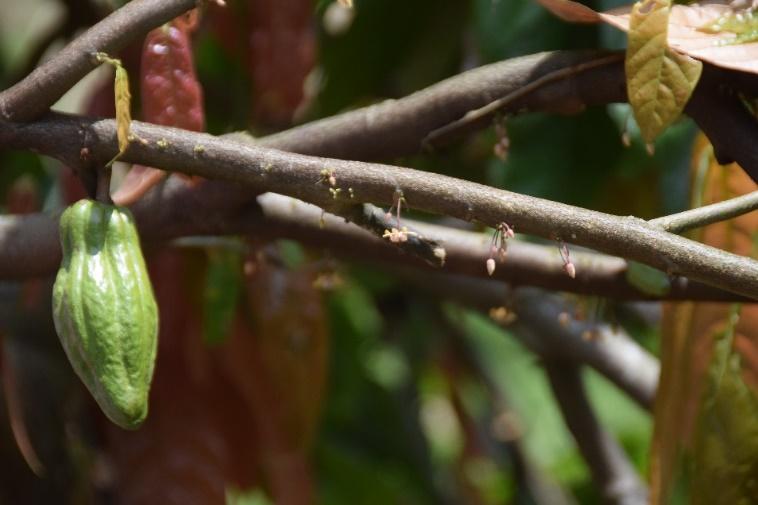
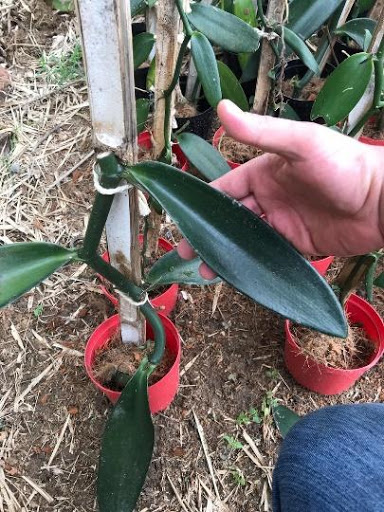
In other parts of the farm, arbolocos (Smallanthus pyramidalis) and other native trees allow passion fruit to grow while climbing on their trunks.
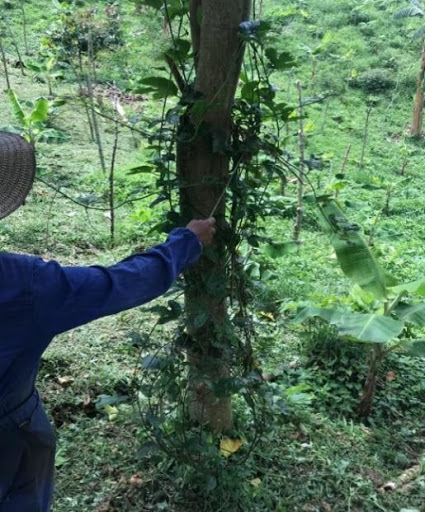
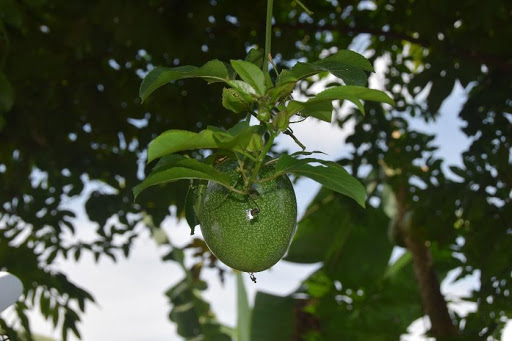
Diverse fruit trees and other perennial species are cultivated throughout the farm:
coffee, sugar cane, citrics, papaya, guava, bananas and plantains among others.

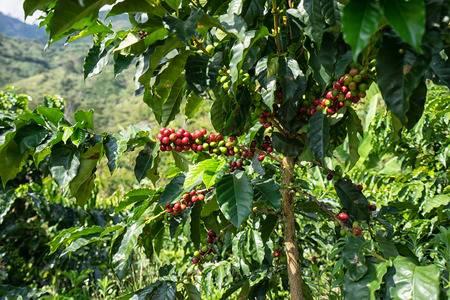
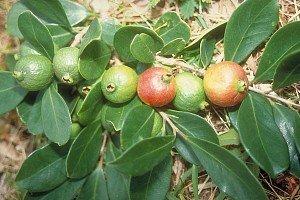
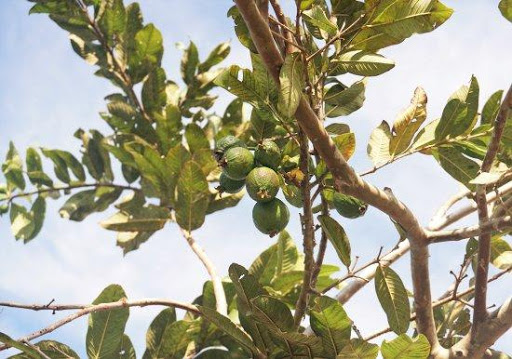
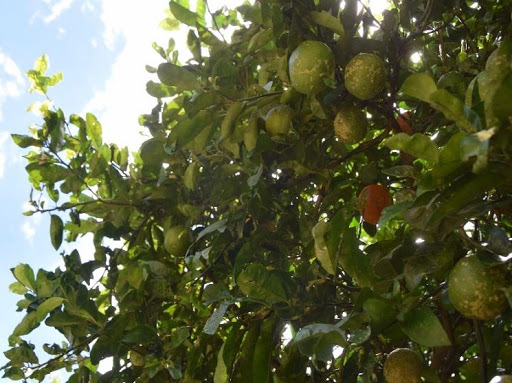
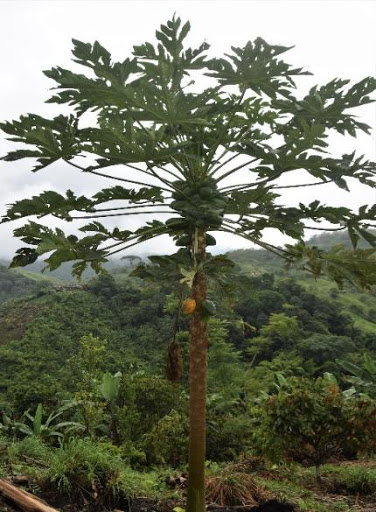
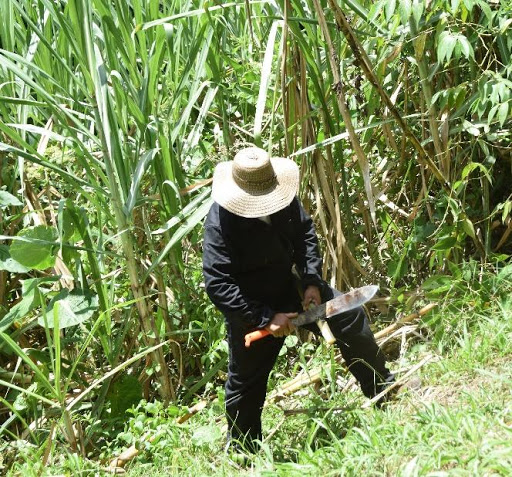
Local spices and vegetables are grown in a small garden year-round.
Basil, thyme, guasca, oregano, rosemary, aromatic teas, tomatoes, broccoli, cucumbers, onions, lettuce, spinach, yucca, zucchini, among many others.
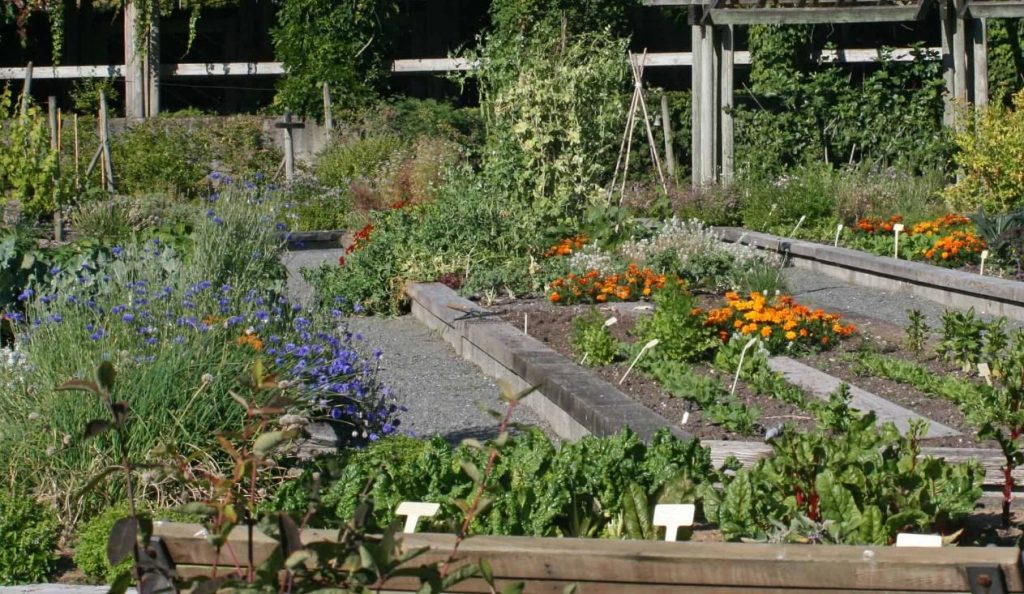
The bamboo forest that surrounds the farm is of extreme value and importance.
Conservation of the farms bamboo forests are also part of the strategy for the management of the land. The ecological value of bamboo is incredibly high. Bamboo has great reproductive capacity, it helps retain water (2 water springs can be found in the farm within the bamboo forest). In addition,1 hectare of bamboo can capture 9 tons of CO2 and can provide enough material to build 9 ecological houses. The bamboo forest also protects the farm and crops from the wind and supports the diversity of the local ecosystem while being home to many plant and animal species.
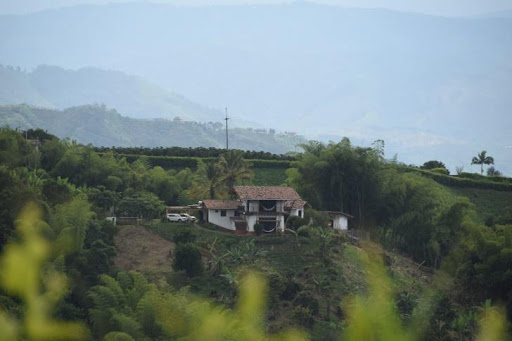
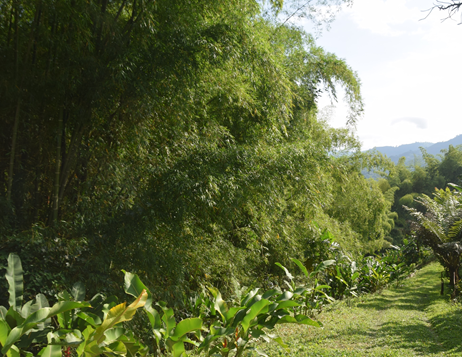
All drawings are courtesy of Carolina Salazar – Architect, as well as pictures indicated with *
